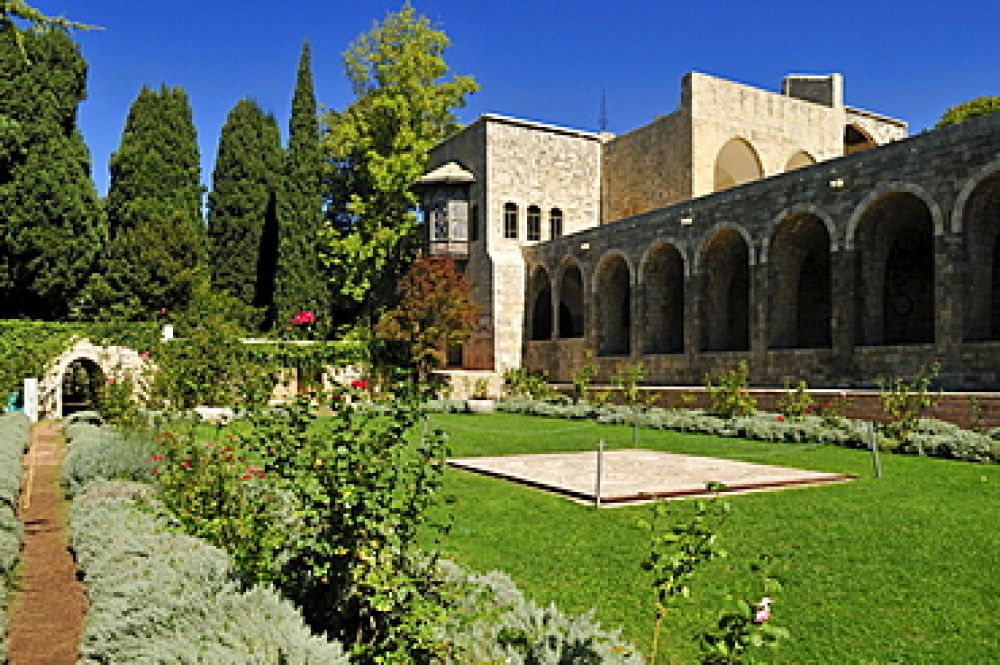

Nestled in the Chouf Mountains of Lebanon, the Beiteddine Palace stands as a masterpiece of Lebanese architecture, blending Eastern and Western influences. Completed in the early 19th century, it was commissioned by Emir Bashir Shihab II, who ruled Mount Lebanon at the time. This historic edifice, now a celebrated museum, is one of the primary attractions for visitors to Lebanon.
Among the highlights of the Palace are its enchanting Upper Gardens. These gardens are a mosaic of manicured terraces, colorful flowerbeds, and ornately decorated fountains that embody the splendor of Ottoman-era landscaping. Visitors to the Upper Gardens are greeted with an ambiance of tranquility and the awe-inspiring vistas of the surrounding mountainous landscape. A walk through these gardens is not merely a stroll but a step back into the opulence and elegance of yesteryear's royalty.
Tourism in Lebanon has a rich and varied history that dates back to the nineteenth century when the country was touted as a land of beauty and culture by European travelers and writers. By the mid-20th century, Lebanon, particularly Beirut, was known as the "Paris of the Middle East," attracting tourists from across the globe. Despite periods of instability, Lebanon's tourism industry has continually strived to reclaim and build upon its historical allure.
Lebanon's cultural heritage, historic sites, and renowned hospitality have been major draws for international tourists. From the Roman ruins at Baalbek to the vibrant streets of Beirut, the country presents a diverse palette for travel enthusiasts.
In recent years, there has been a noticeable shift towards ecotourism and sustainable travel in Lebanon, with more travelers seeking out natural reserves, hiking trails, and eco-lodges. The country's government and private sectors have been working on creating more environmentally friendly tourism infrastructure to cater to this trend.
Another growing trend is cultural tourism, where tourists immerse themselves in local experiences, cuisine, and customs. This has led to a rise in interest for activities such as wine tasting tours in the Bekaa Valley, cooking classes, and cultural festivals that celebrate Lebanon's rich heritage. The storied past and artistic wealth of Beiteddine Palace, alongside the tranquility of its Upper Gardens, remain an integral part of Lebanon's tourism mosaic.
Moreover, Lebanon has seen a surge in adventure tourism, with visitors engaging in activities like paragliding from the Harissa mountain, caving in the Jeita Grotto, and skiing in one of the country's six winter ski resorts. Adventure-seekers are drawn not only by the thrills but also by the unique experiences that blend with the country's scenic beauty.
Despite challenges, Lebanon's tourism sector is resilient and continuously evolving to showcase the country's rich tapestry of historical, cultural, and natural attractions, with sights like the Upper Gardens of Beiteddine Palace standing out as timeless treasures.